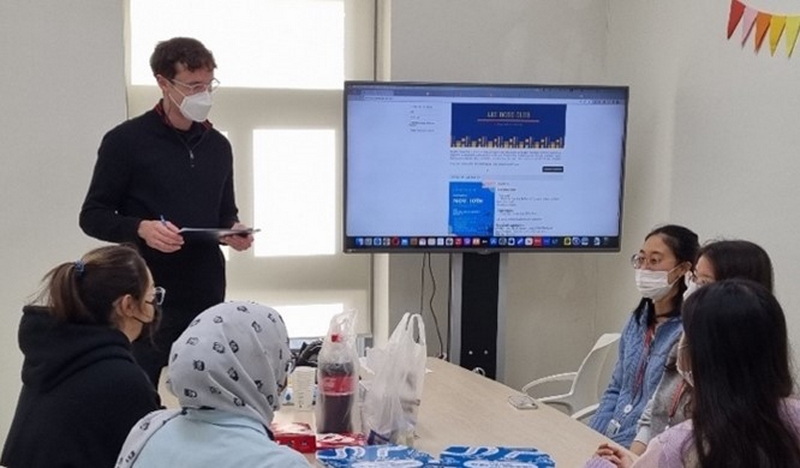Special Interest Groups for English Teachers: Interview with Reece Randall
There is a new guy in town, though he is not new to Korea or to Korea TESOL. Taking up a new position at the Gwangju Institute of Science and Technology (GIST) is Reece Randall. He is also the new second vice-president of KOTESOL, and one of his roles in that position is to oversee the organization’s special interest groups (SIGs). In this interview for the Gwangju News, we ask Reece, among other things, to explain what SIGs are and how they work. — Ed.
KOTESOL: Thank you for this interview with the Gwangju News. I believe you are fairly new to Gwangju and GIST, the Gwangju Institute of Science and Technology. To begin with, how do you find Gwangju?
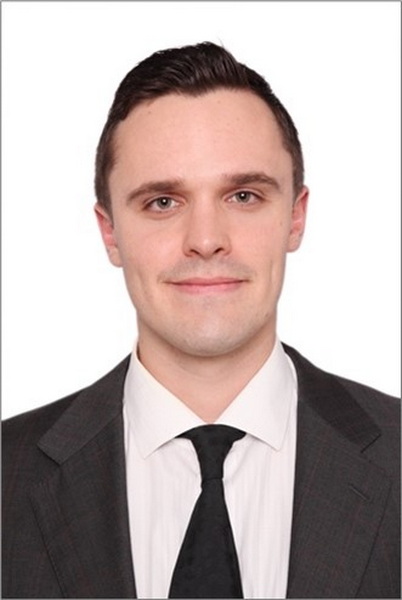
Reece Randall: Thank you for inviting me to do this interview. I am thrilled to share a bit about myself with Gwangju News readers. Since arriving this summer, I have found Gwangju to be welcoming, global, and creative. Welcoming and global in the sense that Gwangju’s diverse people have treated me with warmth and hospitality in sharing and exchanging local and international culture and communication. Creative in the sense that I have started learning about Gwangju’s rich historical foundation on which a thriving, future-oriented, arts and culture scene is based, with innovative educational programs, cultural festivals, museum exhibitions, gallery exhibits, creative socials, theater performances, and cuisine that reflect how proud and expressive Gwangju citizens are. As a firm believer in global citizenship, consider me impressed.
KOTESOL: And what about GIST – is your teaching situation there much different from your teaching situation at your previous workplace in Gangwon-do?
Reece Randall: My current teaching situation involves teaching English writing and presentation courses for science and engineering students at a public institute of science and technology. At my previous workplace, I taught communicative English in a division of liberal arts and general education at a comprehensive national university in Gangwon-do. Currently, the courses I teach focus more on English for specific purposes (ESP) and English for academic purposes (EAP) in science and engineering. While my current context has a more specialized focus and STEM-oriented objectives for my instruction, my primary goal of students attaining competence and proficiency in English communication for personal and professional success has remained the same.
At GIST, I am a faculty member of the Language Education Center (LEC) department, which offers an extensive range of courses as well as extra-curricular activities and programs for graduate and undergraduate students. The mission is to provide GIST students with the best possible learning environment to help them confidently develop and expand their language skills and abilities in their respective research fields. Beyond teaching English credit courses (writing and presentation) for science and engineering students, I lead personalized English clinic (one-on-one) sessions, teach freshman camps, and host extra-curricular activities (such as workshops, clubs, and contests) on select English-related topics or skills. Through these courses and programs, my current role is to help students achieve their academic and professional goals as scientists and researchers.
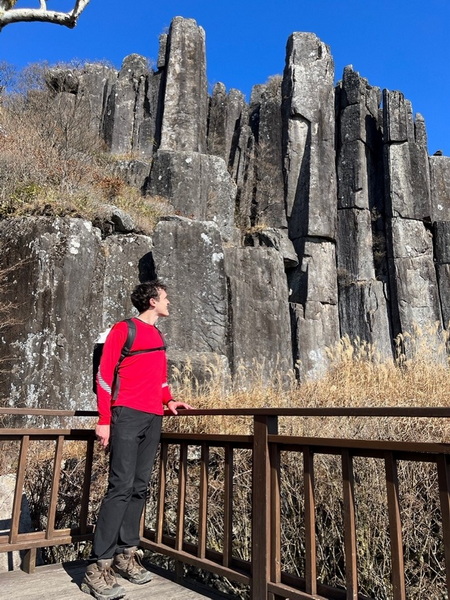
KOTESOL: How do GIST and other institutes of science and technology differ from general universities?
Reece Randall: GIST, DGIST, KAIST, and UNIST are all public institutions dedicated to research in science and technology. These predominantly research-oriented universities were established by the Korean government to contribute to society through the research, development, and advancement of science and engineering. The education and research programs at these institutes are highly specialized and oriented toward STEM-related fields. General universities will typically offer comprehensive degrees in both STEM and non-STEM areas, such as humanities, social sciences, medicine, arts, and physical education.
KOTESOL: You were recently elected second vice-president of Korea TESOL for the coming year. Congratulations! One of the duties of the second vice-president is to oversee the organization’s special interest groups (SIGs). Would you explain what SIGs are and how they differ from KOTESOL’s chapters?
Reece Randall: Thank you! I am sincerely grateful to be in a position to serve the KOTESOL community by overseeing and assisting the SIGs and KOTESOL Teacher Training (KTT). As outgoing Gangwon Chapter president and newly elected second vice-president of Korea TESOL, I have seen firsthand how important both SIGs and chapters are in organizing events and providing resources that meet the needs of members in the field of Korean English education. As the name may suggest, KOTESOL’s special interest groups are communities of English teaching professionals sharing a common interest, such as research, social justice, or reflective practice. This differs from KOTESOL’s chapters, which are communities primarily organized by province or geographical region. KOTESOL members can volunteer to join their local chapter, while also participating in their chosen SIGs as members or leaders.
Many SIGs provide resources and create presentations, workshops, and seminars, while also working with chapters and other groups to hold events in Korea. In recent years, KOTESOL’s special interest groups have included Young Learners and Teens, Women and Gender Equality, Research, Reflective Practice, Professional Development, People of Color Teachers, Multimedia and Computer-Assisted Language Learning, Environmental Justice, Social Justice, Content-Based Instruction, Classroom Management, Christian Teachers, and Critical Thinking. Some groups are currently inactive, and many are seeking facilitators and members on an ongoing basis. More information is available on the KOTESOL website and some SIG-specific Facebook groups.
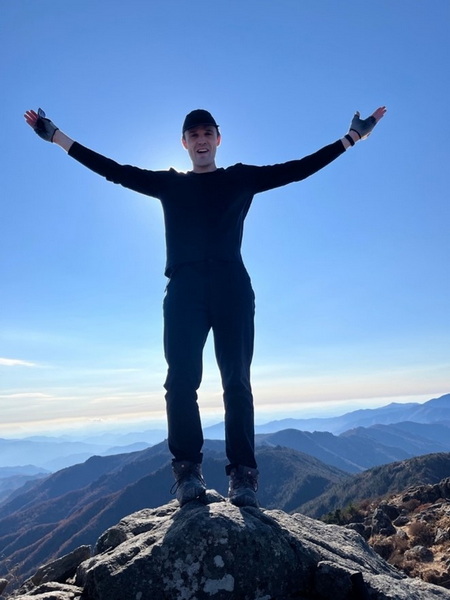
KOTESOL: What plans are you making for the SIGs for the coming year?
Reece Randall: There are numerous SIG-related plans in the works that I am excited about in the coming year! Building on the connections and suggestions members made during the 2022 KOTESOL Connections Day I helped organize here in Gwangju this fall, we are planning a series of SIG meetings in the coming months to outline, discuss, and ultimately facilitate a strong SIG presence at the hybrid (Seoul and online) 30th KOTESOL International Conference (IC) on April 29–30, 2023. In collaboration with the IC organizing committee, we are planning to give SIG leaders and members opportunities to secure dedicated SIG session slots and participate in the vetting process for proposals tagged under their SIG. Through the KOTESOL Teacher Training department, we are also planning to offer support in gathering presenters from Korea and abroad when requested. To encourage greater awareness, participation, and involvement in SIGs from KOTESOL members, we plan to work with KOTESOL’s Publicity Committee to help SIGs put out calls for new leaders and members and promote upcoming events. Finally, I am looking forward to organizing SIG social events to help members get to know coordinators, exchange ideas, and encourage team building.
KOTESOL: Are SIGs useful in providing materials or ideas for teaching EFL classes?
Reece Randall: As their main interest is connected in some way to English teaching, KOTESOL’s SIGs are very valuable sources of materials and ideas for teaching EFL classes. For their respective areas of interest, SIGs have set up appropriate platforms, coordinated events, or selected facilitators to enable the exchange of teaching ideas, resources, and expertise. For example, I was conducting CALL-related research as part of my interest in integrating educational technology and media into my EFL classroom, so I attended a roundtable event coordinated by the Multimedia and Computer-Assisted Language Learning (MCALL) SIG at the 2022 KOTESOL IC. The discussion and resources shared were immediately applicable to my EFL research and teaching. I recommend contacting the facilitator of the SIG you are interested in for more information about SIG-related events and resources for teaching EFL classes.
KOTESOL: If there is at present no SIG catering to the interests of a group of teachers, how could they go about creating such a SIG?
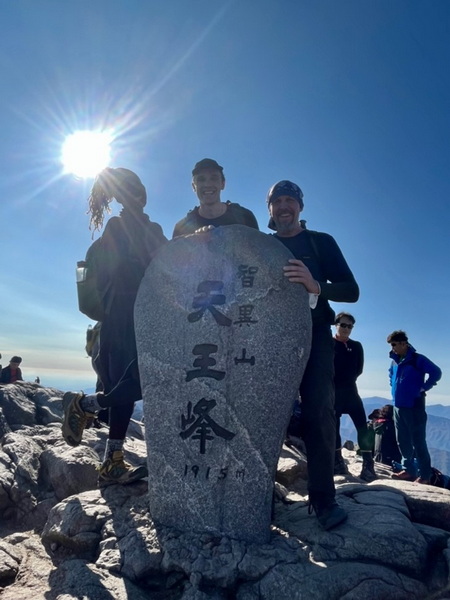
Reece Randall: KOTESOL very much welcomes applications from members for the creation of new SIGs or the restarting of inactive SIGs as part of our going mission of “Teachers Helping Teachers.” SIGs can be created if their main interest is related in some manner to the teaching of English, and with the approval of the KOTESOL National Council. Applications should include a statement of purpose, a list of proposed activities, planned undertakings during the first year, a list of approximately 20 current KOTESOL members interested in becoming active in the proposed SIG, and information about founders and the selection of SIG facilitators (leaders). For more details about submitting applications for National Council approval of a newly proposed SIG, members can get in touch with me at 2vp@koreatesol.org.
KOTESOL: How do the members of a SIG “meet” to exchange ideas, etc.?
Reece Randall: Facilitators, members, and/or presenters for each SIG decide the format and structure of meetings and communication. During the pandemic, SIGs have set up Facebook groups and scheduled online meetings via Zoom to facilitate participation from both local and international members. Many host sessions as part of KOTESOL chapter events or national and international conferences. These sessions have included workshops, dialogues/roundtables, panel discussions, poster presentations, and colloquiums. Some SIGs have published monthly, quarterly, or annual periodicals, such as newsletters, to share ideas and engage with members.
KOTESOL: What plans do you have for the future? Are you planning on a long stay in Gwangju?
Reece Randall: I am planning to live and work in Korea for the foreseeable future. I would be thrilled to continue teaching and researching at GIST for the next few years and hopefully make Gwangju a home away from my home country of South Africa. In the field of English language teaching, I am planning to collaborate with teachers and researchers in sharing resources and publishing academic research. As a lifetime member, I am confident that KOTESOL will continue to be a significant part of my research and professional development, as well as provide a meaningful sense of community and collegiality.
KOTESOL: What would you like to see KOTESOL do in the coming years as the pandemic nears its end?
Reece Randall: I share the excitement many members have expressed with a return to many face-to-face events. At the same time, I am also looking forward to KOTESOL continuing to offer a combination of in-person, hybrid, and online offerings as needed. The past few years of the pandemic have made us more aware of online tools and resources, particularly technology applications and platforms that have enhanced the accessibility of conferencing and events for members based locally, nationally, and internationally. I believe the pandemic has challenged KOTESOL to grow and develop its capacity to deliver dynamic and innovative conferences using technology. I think the hybrid 30th Korea TESOL International Conference will showcase all that we have learned from the pandemic, while also breaking new ground as our first hybrid event. I would like to see the hybrid format facilitating new and improved exchanges among scholars, instructors, and students in line with the theme of advancing collaboration.
KOTESOL: What do you like to do outside of the classroom? Are there any other hobbies or activities you are planning to pursue during your time in Gwangju?
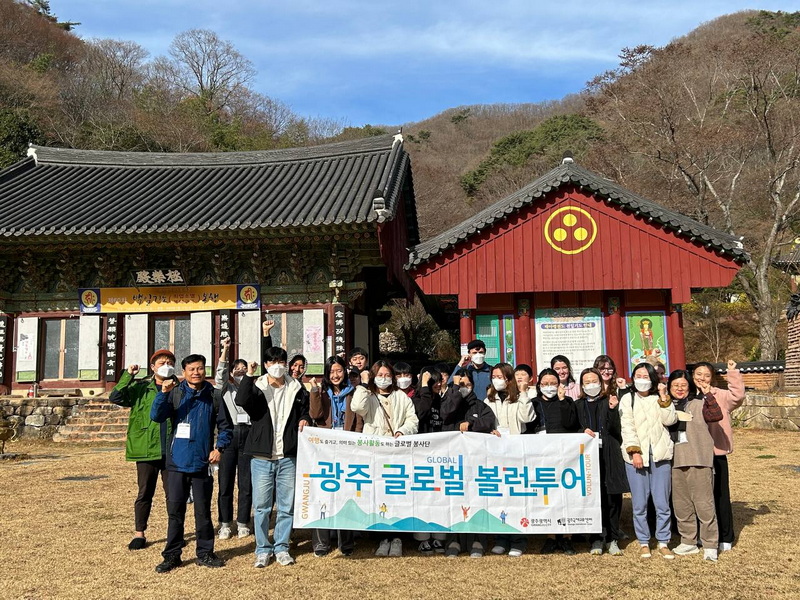
Reece Randall: I like to participate in English book clubs, attend Korean language classes, hike provincial and national parks, cycle coastal and river paths, as well as explore local cuisine and culture. Soon after my arrival here in Gwangju, I became a member of the Gwangju International Center (GIC) and began actively participating in classes, programs, and events. I have found it to be a fantastic introduction to the inclusive global community and rich cultural exchange that occurs here in Gwangju. I thoroughly enjoyed the global food and culture during Gwangju International Community Week in October. I also enjoyed the GIC Volun-tour trip in November to Daewon Temple in Boseong, which was my first temple stay experience in Korea. The two-day program included visiting Seo Jae-pil’s birthplace, performing 108 bows, meditation, touring the Tibetan Museum, as well as sampling local tea and Tibetan temple food. I plan to continue to get involved with GIC Volun-tour (volunteer + tour) programs and events such as hiking, cycling, and temple stays. If time allows, I plan to continue attending the global cultural and language classes the GIC offers every semester. As a global citizen, the GIC’s mission of sharing and exchanging culture and communication very much aligns with my interests and values.
KOTESOL: You sure are a busy man – in your free time as well as in your teacher organization volunteer work and with your school work! Thank you for making time for this interesting interview.
Interviewed by David Shaffer.
Photographs courtesy of Reece Randall.
Gwangju-Jeonnam KOTESOL Upcoming Events
- January 14, 2023: Monthly Workshop (at GNUE)
Check the Chapter’s webpages and Facebook group periodically for updates on chapter events and other online and in-person KOTESOL activities.
For full event details:
- Website: http://koreatesol.org/gwangju
- Facebook: Gwangju-Jeonnam KOTESOL
The Author
David Shaffer has been involved in TEFL, teacher training, and research in Gwangju for many years. As vice-president of the Gwangju-Jeonnam Chapter of KOTESOL, he invites you to participate in the chapter’s teacher development workshops and events (online and in person) and in KOTESOL activities in general. He is a past president of KOTESOL and is currently the editor-in-chief of the Gwangju News.




